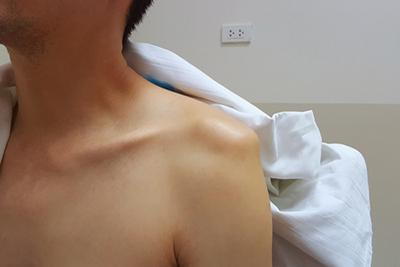Treatment Options for Shoulder Dislocation

- posted: Feb. 20, 2024
A shoulder dislocation in Paramus, NJ, can be both painful and disabling. It is usually the result of an injury such as a sports injury or an auto accident. Dr. Roger Pollock is a board-certified orthopedic surgeon who can provide the treatment that you need to get back the use of your shoulder. His practice is focused solely on the conditions of the shoulder.
The shoulder is the most complex joint in the body. It can move in more directions than any other joint, which also makes it more vulnerable to injury. The shoulder is a ball and socket joint and when the ball pops out of the socket it is a dislocation.
A complete dislocation is obvious and extremely painful; a partial dislocation is not quite so obvious. With a partial dislocation, the joint may go back into the socket by itself, but it may continue to sublux and feel unstable and needs to be looked at by an orthopedic doctor.
Immobilization
If you suspect that your shoulder is dislocated, try to keep it from moving. Moving will not only cause pain, but it may make things worse. Wrap it up any way you can to keep it from moving and get to the doctor as quickly as possible.
Simple manipulation
In some cases, one of the many simple manipulation techniques may be all that is needed to get the ball back into the socket. More than 20 different techniques to return mobility and get the shoulder back into working condition are available. You may be given medication to help to reduce the pain and help the muscles to relax. Once the shoulder is put back, the pain should end.
Splinting
Immobilization with a sling is the standard treatment for anterior shoulder dislocations. The duration of sling use will vary, according to the age of the patient and whether this is the first dislocation or a recurrence.
Surgery
Surgical repair of shoulder instability is usually reserved for patients with recurrent episodes of dislocation or subluxation, but is sometimes indicated after primary or first time events. An orthopedic surgeon like Dr. Pollock will be able to give you all the surgical options that are available and discuss the procedure and recovery.
Rehabilitation
After whatever procedure you require, it is important that you follow a course of rehabilitation to make sure you get your mobility and strength back in your shoulder. Your doctor will discuss what you require and may recommend where to get it.
Contact Dr. Pollock at his Paramus Office (201-612-9774), if you have sustained a shoulder dislocation or if you have persistent pain or instability symptoms after a shoulder dislocation or subluxation.
This website includes materials that are protected by copyright, or other proprietary rights. Transmission or reproduction of protected items beyond that allowed by fair use, as defined in the copyright laws, requires the written permission of the copyright owners.

